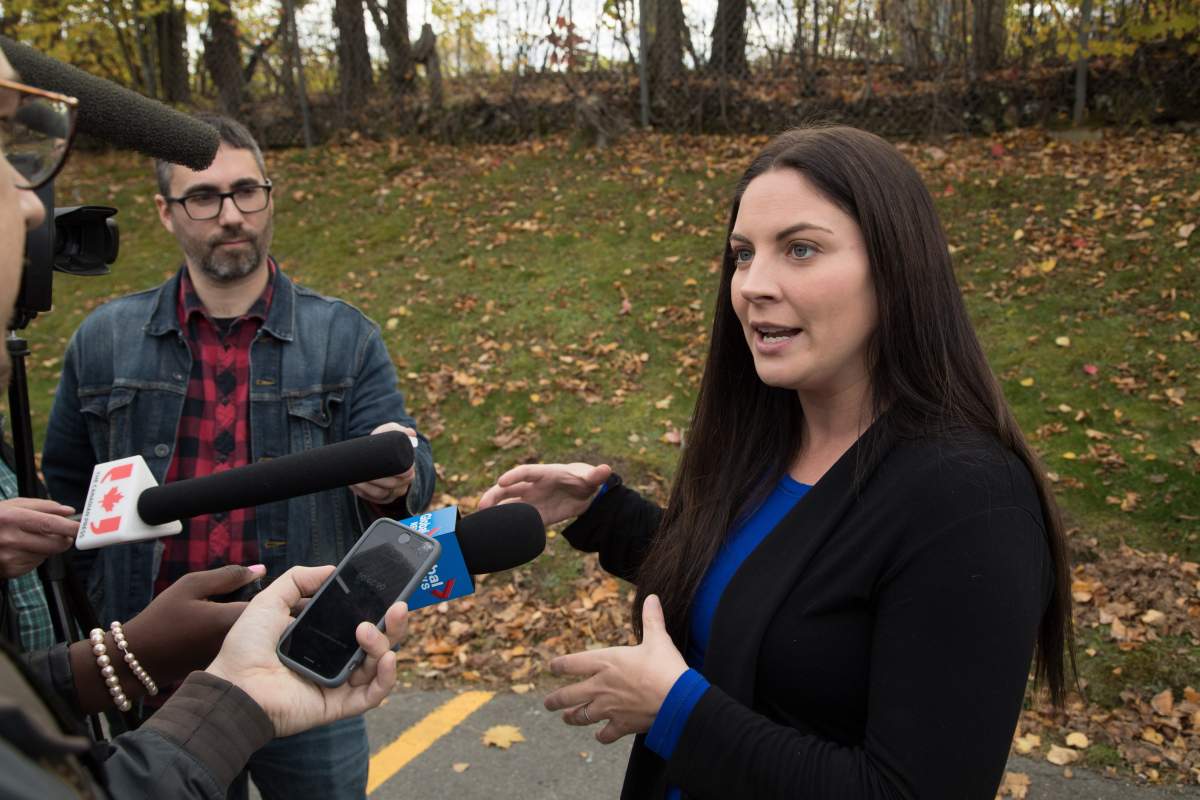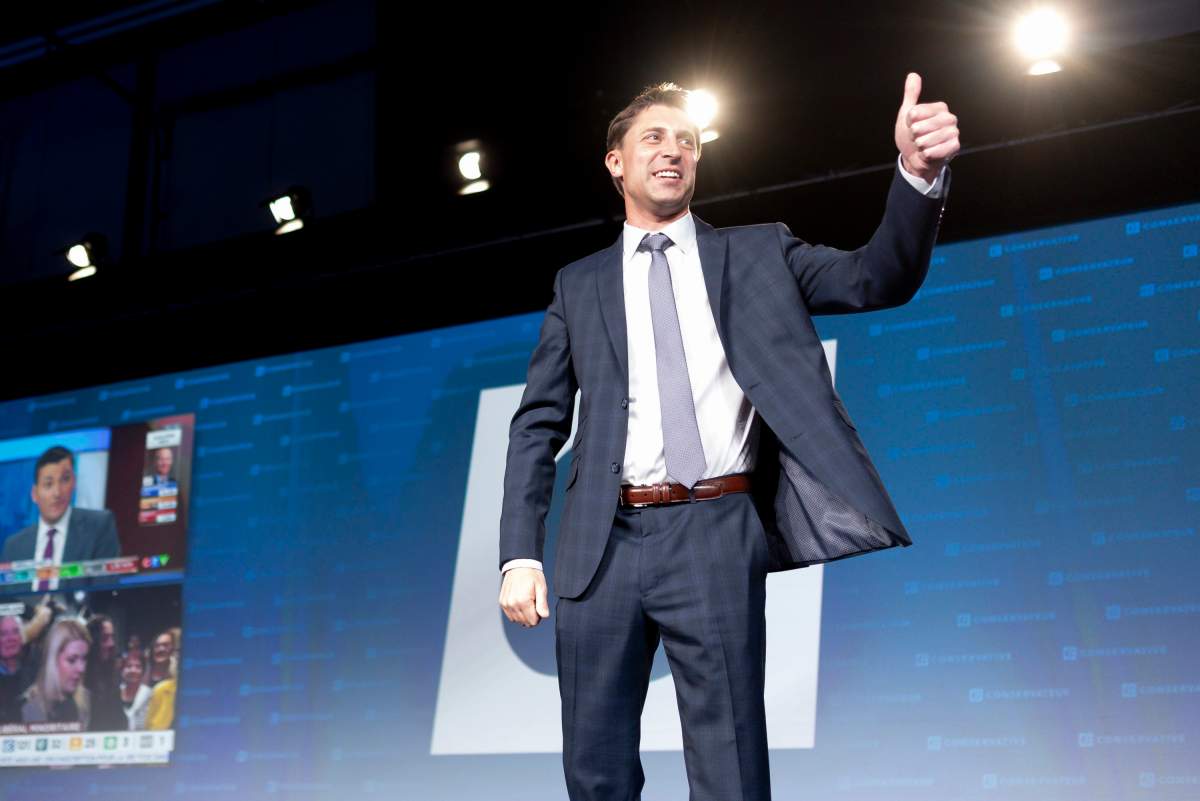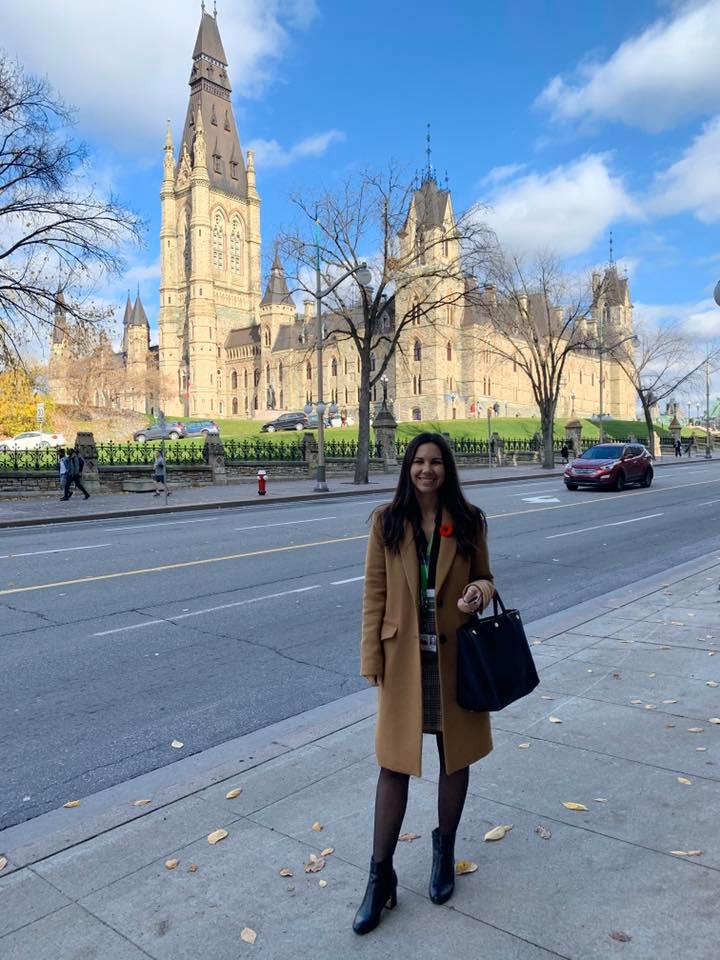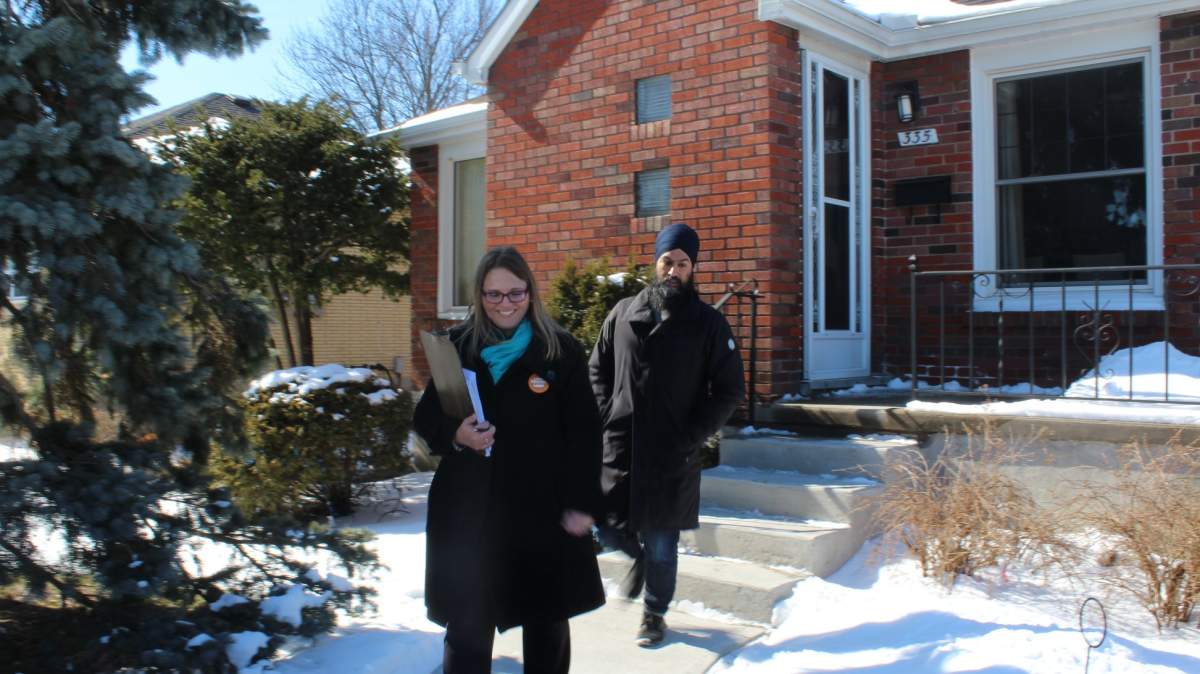Nearly 100 new members of parliament are preparing to begin their duties when the government reconvenes next month under a Liberal minority.

Global News spoke with a number of first-time MPs about how they got here and what they hope to accomplish in the immediate future.
Jenica Atwin (Green Party)
Climate change is clearly a top priority for any Green Party member, but newly-elected Fredericton MP Jenica Atwin’s first order of business is dealing with the shuttering of the only private abortion clinic in her province.
“It’s very time-sensitive,” said Atwin, who made history during the last election by becoming the Green Party’s third-ever MP and the first to be elected outside of British Columbia.
Clinic 554 is a family practice and the only place in New Brunswick that provides abortion services to women outside of the hosptial. In October, the clinic announced it would be forced to close due to a lack of provincial funding, prompting an outcry from health advocates and calls for the federal government to intervene.
“My number one priority is ensuring that New Brunswick upholds the Canada Health Act and we ensure access for anyone who requires these services,” said Atwin, who previously served as a community activist and a researcher for a First Nations education organization.
Under the Canada Health Act, the federal government can punish provinces that fail to provide health services, including abortion, by withholding transfer payments.
“It’s going to take some work and some elbow grease,” she said, “but it needs to be done.”
Atwin said her experience working with at-risk youth and Indigenous communities has shown her how the system has failed many people.
“I’ve been to protest lines and demonstrations, and you can only get so far in that approach,” she said. “I felt that, by getting involved in this way, that maybe I can remove some of those barriers from the inside.”
Michael Kram (Conservative)
- Conservative MP searches for ‘antifa’ in federal government, Canadian Armed Forces
- Liberals survive confidence vote as House passes budget implementation bill
- Liberal, Bloc Québécois rematch in Terrebonne riding after Supreme Court nixes result
- Alberta budget 2026 comes with spending hikes but $9.4B deficit
Having been represented by Liberal Ralph Goodale for more than 25 years, the riding of Regina-Wascana had become known as the “Goodale riding.”
But that dynasty came to a crashing halt in October when it went Conservative for the first time since 1993. Former software developer Michael Kram overtook Goodale, who held many cabinet positions and is the only MP to have served in the governments of both Justin Trudeau and his father, Pierre.
Kram ran against Goodale in the 2015 election, but lost by about 20 per cent. The rising angst within the Prairie provinces toward the energy sector policies of the Trudeau Liberals helped catapult him to the top.

Get breaking National news
“I’ve noticed in those four years a lot more voters on the doorstep expressed a lot of concern about the slowdown in the resource sector,” Kram said.
“The change in my electoral fortunes had a lot more to do with some of these external factors, much more so than any one particular thing that I did.”
To that end, Kram says his top priority is pipelines.
“Getting the Trans Mountain built and getting private sector pipelines built — that would go a long way to solving a lot of problems that we’ve seen in my riding,” he said.
Kram said he’s optimistic that these sorts of policies will be accomplished if Trudeau and Scheer work together, but he’s concerned with some of the rhetoric coming from other parties such as the Bloc Quebecois and the NDP. He says they’re vilifying the western Canadian resource sector.
“And if Justin Trudeau chooses to side with those parties instead of the Conservatives, then yes, it will lead to lots of problems.”
Kristina Michaud (Bloc Quebecois)
Kristina Michaud was elected to represent the riding of Avignon-La Mitis-Matane-Matapedia amid a resurgence of the Bloc Quebecois that resulted in 32 seats for the sovereigntist party. The Bloc’s surge helped bring the Liberal government down to a minority.
Bloc leader Yves-Francois Blanchet vowed to promote Quebec’s autonomy on a range of things, including the economy and immigration. The Bloc is also the only federal party to throw support behind Quebec’s controversial legislation to ban certain public servants from wearing religious symbols.
Michaud has experience as a political staffer for Quebec’s National Assembly, but at 26, she is now one of the youngest MPs — something she says eventually appealed to voters who were fed up with the status quo.
“At first, it maybe pushed away people. They would say, ‘You don’t have any experience,’” Michaud said.
“Then they would hear me talk and do an interview and then they would say, ‘Oh, OK, she has something to say,’ … and they would put their confidence in me.”
At the top of her agenda is dealing with climate change, with the party saying at the outset of the election that it would run a carbon-neutral campaign.
“There’s a lot of things that happen here in nature or to the environment that are due to climate change. And people start really realizing that,” Michaud said.
Her region, in particular, has been impacted with eroding shorelines.
Other priorities include supporting seasonal workers and dealing with the federal government’s Phoenix payroll system, which improperly paid more than 100,000 federal workers, leaving many short-changed.
Lindsay Mathyssen (NDP)
In another federal first, Lindsay Mathyssen became the first woman to take over her mother’s seat when she was elected as the NDP MP for the riding of London-Fanshawe in Ontario.
Mathyssen’s mother, Irene, had represented the riding since 2006 and announced her retirement ahead of the 2019 election. Mathyssen’s formative years were spent immersed in the world of politics and she never wanted to do anything different with her career.
“I was surrounded by all of these fierce New Democrats who were truly working to make the world around them, their neighbourhoods, their communities, their country better,” Mathyssen said.
Mathyssen herself worked as a political staffer on the Hill for many years, not really considering becoming a candidate herself until she started a leadership role within her union.
“I was always taught very clearly that this is so much bigger than just one person or just that one agenda, that this is about people who are vulnerable and can’t stand up for themselves,” she said.

During this campaign, she heard countless people talk about the cost of food and rent.
“It’s becoming completely unmanageable. And the city itself is trying to cope with all of that,” Mathysson said.
She said the cuts in Ontario by the provincial Doug Ford government this year came up a lot, too.
“Our ideas around those systemic issues of housing, of poor, of providing those social programs — I mean, people got so excited that there was a possibility.”












Comments
Want to discuss? Please read our Commenting Policy first.